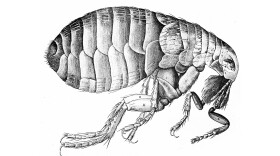
Rae Ellen Bichell
Rae Ellen Bichell is a reporter for NPR's Science Desk. She first came to NPR in 2013 as a Kroc fellow and has since reported Web and radio stories on biomedical research, global health, and basic science. She won a 2016 Michael E. DeBakey Journalism Award from the Foundation for Biomedical Research. After graduating from Yale University, she spent two years in Helsinki, Finland, as a freelance reporter and Fulbright grantee.
-
Tendons quietly do their jobs for decades, connecting muscle to bone. Then suddenly — it's done. Here's what happens when a biceps tendon calls it quits.
-
Scientists have found a group of worms that haven't reproduced sexually for 18 million years. Normally that would be a recipe for quick extinction, but these little guys seem none the worse for wear.
-
A bad outbreak is spreading in Madagascar. We checked in with a virologist and outbreak response specialist Dr. Daniel Bausch to see what's up.
-
Scientists were worried about Zika at the 2016 Olympics in Brazil. But a recent study found there was no evidence of the virus in athletes and staff. They did, however, find other viruses.
-
The number of cases has prompted a ban on public gatherings — and concern from the World Health Organization. The disease is spreading in cities and has claimed 30 lives so far.
-
Clinical trials are too white, with less than 2 percent of cancer studies including enough minority people to provide information that could be useful for health, a study finds.
-
Twenty years. That's how long two grad students, Sonia Vallabh and Eric Minikel, think they have before a deadly disease envelops Sonia's brain. The Massachusetts couple is now racing to find a cure.
-
Jon Krakauer has long been haunted by how Christopher McCandless died in the Alaskan wilderness. In a scientific journal, he and a chemist show that the seeds McCandless consumed can contain a toxin.
-
In medieval times, they called it "the black death." It's still around, routinely cropping up in the U.S. This time, the New Mexico Department of Health reports three cases.
-
Coloradans can get arrested for driving while stoned. But with no good roadside tools, officers' determinations are more subjective than for alcohol DUIs. Scientists hope to find chemical markers.










